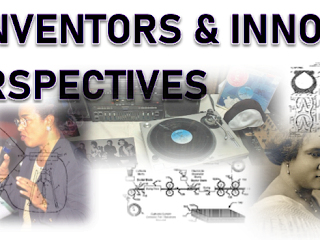 |
| Joan Wallach Scott (IAS) |
[We continue our posting of the citations, prepared by the Honors Committee of the American Society for Legal History, for the three legal historians named Honorary Fellows of the ASLH at its November 2020 meeting. Today’s honoree is Joan Wallach Scott. DRE]
Our next Honorary Fellow is Joan Wallach Scott, emeritus professor at the Institute for Advanced Study in Princeton, New Jersey. Professor Scott is a transformative scholar of French social and labor history, the history of gender and feminism, and the history of civil liberties in the United States and in France.
Professor Scott received her B.A. from Brandeis University in 1962 and her Ph.D. in history from the University of Wisconsin in 1969. She began her teaching career at the University of Illinois, Chicago, and from there moved to Northwestern University, the University of North Carolina at Chapel Hill, and Brown University, where she was the founding director of the Pembroke Center for Teaching and Research on Women. In 1985 she joined the Institute for Advanced Study, where she was Harry F. Linder Professor in the School of Social Science.
Through a dozen monographs, another dozen edited volumes, and articles and book chapters too numerous to count, Professor Scott has challenged the foundations of conventional historical practice, including the nature of historical evidence and historical experience and the role of narrative in the writing of history. Her challenges have repeatedly won recognition from her colleagues in the profession. The American Historical Association alone has bestowed four awards on her, starting with the Herbert Baxter Adams Prize in 1974 for her first book, The Glassworkers of Carmaux: French Craftsmen and Political Action in a 19th-Century City; followed by the Joan Kelly Memorial Prize in 1989 for her book, Gender and the Politics of History; the Nancy Lyman Roelker Mentorship Award in 1995; and the Award for Scholarly Distinction in 2008. She holds honorary degrees from universities in the United States and Europe, and in 1999 the Hans Sigrist Foundation at the University of Bern awarded her its prize for her groundbreaking work in gender history. The influence of her work is truly international-her books and even some of her articles have been translated into multiple languages.
Professor Scott may not be a legal historian, but scholars who study the legal history of gender, feminist legal thought, or the legal history of secularism or of academic freedom-to take four core areas of modern legal historical scholarship-could not imagine their scholarship without her powerful and inescapable presence. For many of us in legal history, she is best known as the author of a series of path-breaking articles on methodology in history, which have had immense impact on our field as well as on others.
Taking just the legal history of gender, her work has transformed the practices of nearly everyone who works in the field. Her now-classic article, 'Gender: A Useful Category of Historical Analysis"-in which she argued that studying gender explains not only women's history, but history generally-challenged the reigning conventions in women's history and continues to inspire innovative research. Without question, engagement with her scholarship has deepened what legal historians do.
Professor Scott's survey of the history of French feminism opened up the history of feminism to legal historians. Beginning with her book, Only Paradoxes to Offer: French Feminists and the Rights of Man, she has explored the gendering of citizenship and rights in modern representative democracies. Her demonstration that the concept of citizenship was from the start gendered as male and defined against a female "other" illuminated the dilemmas at the heart of rights claims, such as the paradox of women claiming "the rights of man." In examining the continuing difficulties faced by feminists in their struggle for equality, her analysis has assisted scholars and activists focused on women, people with disabilities, and members of racial, ethnic, and sexual minority groups.
Her interest in the ways in which difference poses problems for democratic practice continued in subsequent books-most notably Parité: Sexual Equality and the Crisis of French Universalism and The Politics of the Veil. Her work on the veil enmeshed her as a willing and provocative combatant in legal controversies both in France and the United States about the meanings of secularism. Her careful analyses of the headscarf controversies in France became a model of how to explore such issues. Writ large, her scholarship traces the limits of liberalism, whether among French feminists or the American historical profession. Her work has made her an important voice for academic freedom.
Professor Joan Scott has also been an active and generous citizen of the profession. The center she created at Brown became a site for exploring feminist theory by historians and others in the humanities and social sciences who until that point had been mostly hostile to social theory. At the Institute for Advanced Study, she brought in generations of younger scholars, encouraged them, and guided them, as her work has guided so many others, legal historians included.
Professor Scott has always been a challenging presence. She has been described-admiringly-as spiky and uncompromising. Her work has often been controversial, good both to argue over and engage and argue with. Yet, it has always been essential. She does not need our accolades, but we have needed her and are grateful for what she has taught us. We are pleased and honored to welcome her as an Honorary Fellow of the Society.





